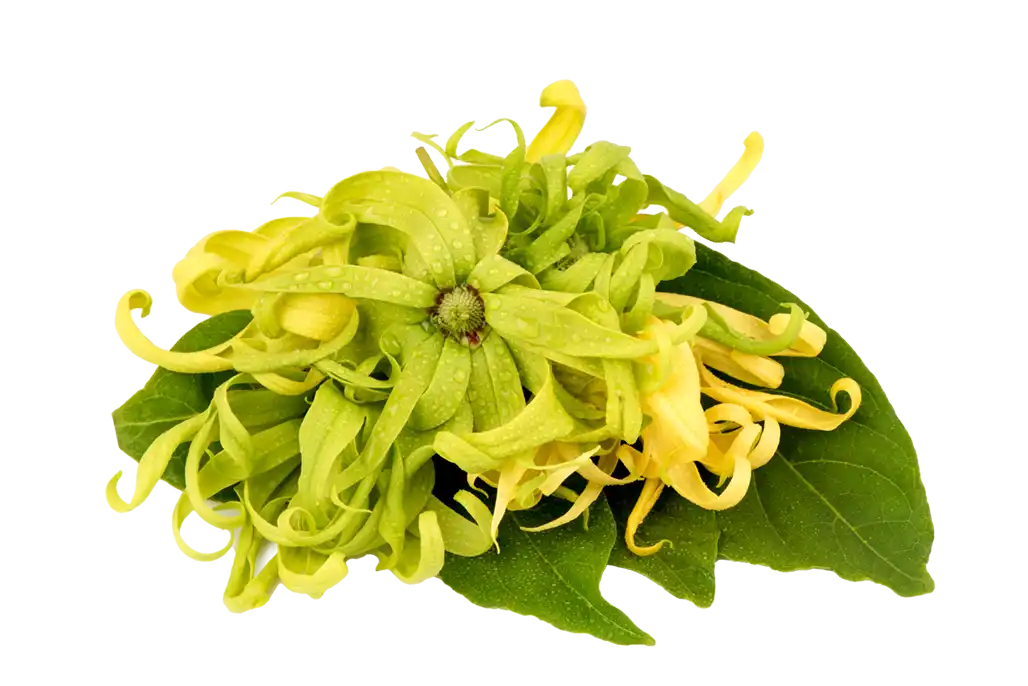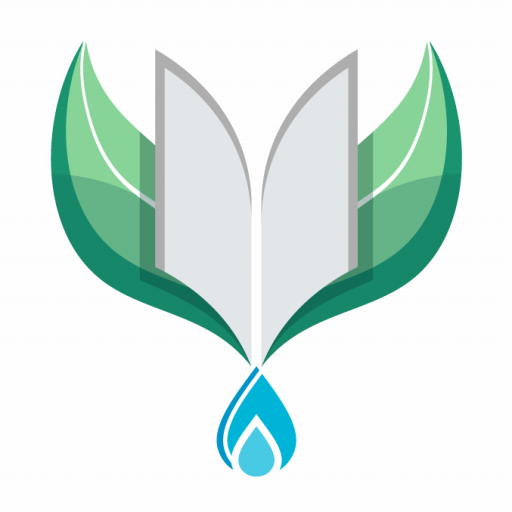Ylang ylang essential oil
Cananga odorata
Ylang ylang essential oil, derived from the star-shaped yellow blossoms of the Cananga odorata tree, has long captivated cultures around the world with its intoxicating fragrance and impressive therapeutic properties. Known for its sweet, floral, and slightly fruity aroma, this essential oil not only finds its place in perfumery but also plays a crucial role in traditional medicine, spiritual practices, and even culinary arts. Its versatile nature and rich history make ylang ylang essential oil an invaluable addition to anyone’s wellness routine.
The History of Ylang Ylang Essential Oil
The origins of ylang ylang trace back to the tropical rainforests of Southeast Asia, particularly in the Philippines, Indonesia, and Malaysia. The name “ylang ylang” translates to “flower of flowers” in the Tagalog language, a nod to its unique and powerful fragrance. Historically, indigenous communities used ylang ylang flowers in rituals and as a natural remedy for various ailments.
In the late 19th century, French perfumers began to take an interest in ylang ylang due to its alluring scent. It soon became a key ingredient in many high-end fragrances, most notably in Chanel No. 5. Beyond its use in perfumery, it became a staple in traditional medicine throughout Asia for its calming and healing effects.

Scent description
Sweet, rich, flowery, spicy
Usage
Inhaled | topically | internally
Effects, use cases
antihypertensive | aphrodisiac | antispasmodic | sedative| low libido | impotence | hormonal imbalance | high blood pressure | heart rhythm disorder | fatigue | nervousness | restlessness | hair loss | stomach ache | oily skin
Disclaimer: always check the manufacturer's recommendation before using any essential oils internally or topically!
Warning, safety cautions
Essential oils are not intended to diagnose, treat, or prevent any disease, nor do they replace medications or therapies prescribed by a physician. They are not medicinal products and do not qualify as drugs. Based on experience, essential oils may have complementary therapeutic effects. If you are unsure about how an essential oil might affect you or your child, consult your general practitioner and/or a qualified aromatherapist. Before using any new essential oil (especially internally or directly on the skin), perform a patch test.
Use and health effects of ylang ylang essential oil
Aromatherapy
Ylang ylang essential oil is famous for its mood-enhancing properties. Its calming effect helps reduce anxiety, stress, and tension. Diffusing a few drops of ylang ylang oil can create a serene atmosphere, promoting relaxation and emotional balance.
Skincare
Ylang ylang oil offers significant benefits for skin health. Its antiseptic and anti-inflammatory properties make it useful for treating minor cuts, wounds, and skin irritations. Moreover, it helps regulate sebum production, making it beneficial for both oily and dry skin types.
Haircare
Ylang ylang essential oil is often used in hair treatments to promote healthy hair growth and prevent dryness. Its ability to stimulate the scalp and balance oil production makes it a popular ingredient in natural hair care products.
Culinary Uses
While not widely known, ylang ylang flowers are sometimes used to flavor traditional desserts and beverages in certain Southeast Asian cuisines. The flavor is delicate and floral, adding an exotic touch to sweet dishes.
How to use ylang ylang essential oil?
Low libido, impotence
Massage into your abdomen, place on pulse points or place 1 drop under your tongue or take 1 drop in an empty capsule.
Heart rhythm disorders
Massage into your feet and above your heart. Inhale directly from your palms.
Nervousness, restlessness
Use in a diffuser or take 1 drop in an empty capsule. Inhale directly from your palms, place under your nose or massage into your feet.
Stomach ache
Massage into your abdomen mixed with a carrier oil or take 1 drop in an empty capsule.
High blood pressure
Apply to the back of your neck, forehead, behind your ears. Inhale directly from your palms or place 1 drop under your tongue or take 1 drop in an empty capsule.
Exhaustion
Use in a diffuser or take 1 drop in an empty capsule.
Hair Loss
Massage into your scalp.
Oily Skin
Use on oily areas or take 1 drop in an empty capsule.
Disclaimer: always check the manufacturer's recommendation before using any essential oils internally or topically!
Warning, safety cautions
Essential oils are not intended to diagnose, treat, or prevent any disease, nor do they replace medications or therapies prescribed by a physician. They are not medicinal products and do not qualify as drugs. Based on experience, essential oils may have complementary therapeutic effects. If you are unsure about how an essential oil might affect you or your child, consult your general practitioner and/or a qualified aromatherapist. Before using any new essential oil (especially internally or directly on the skin), perform a patch test.
Ylang ylang essential oil – spirituality and soul
In spiritual practices, ylang ylang has been regarded as a symbol of love, harmony, and joy. Many cultures believe that the oil’s uplifting scent can help open the heart and promote inner peace. It has been used in religious ceremonies and meditation rituals to enhance spiritual connection and foster positive energy.
Recommended manufacturers of Ylang ylang essential oil
dōTERRA
This essential oil is currently available from dōTERRA.
For further information, visit the dōTERRA website.
Young Living
Young Living is currently selling this essential oil.
For further information, visit the Young Living website.
Contact info
Author:
Roseware Kft. - Réka Rózsáné Illés
Affiliate programs
I am open to be the part of affiliate programs with essential oil manufacturers and sellers. Contact me!
Copyright info
Photos and texts on this website are subjects of copyright - the owner of the copyright is Roseware Kft. - Réka Rózsáné Illés. Do not use any of these without permission.
